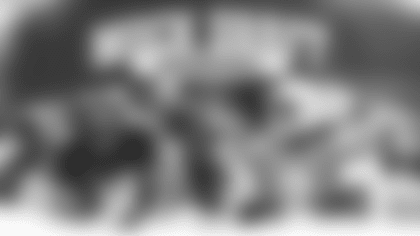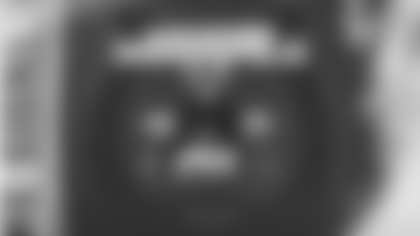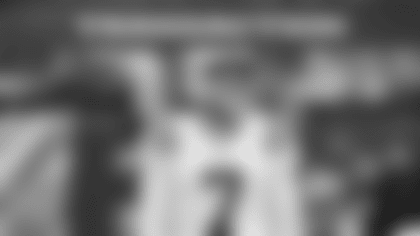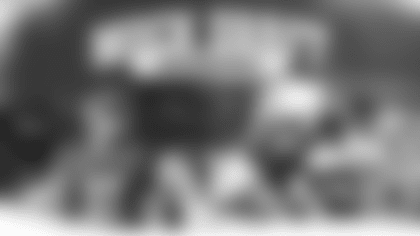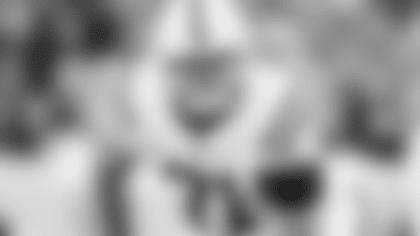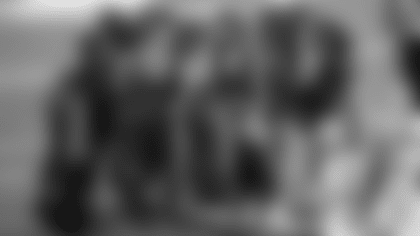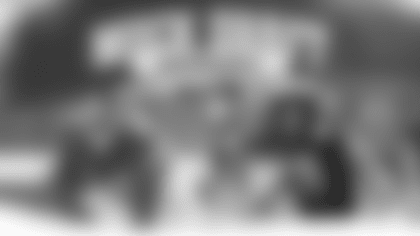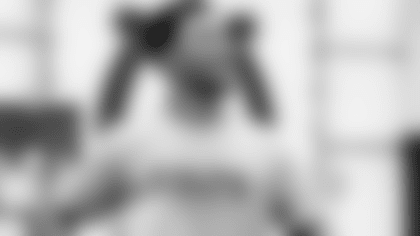INDIANAPOLIS — Former legendary Indianapolis Colts offensive line coach Howard Mudd recently sat down for a one-on-one with Colts.com's Jeffrey Gorman. The two chatted about a ton of topics, including Mudd's playing career, his thoughts on the passing of close friend John Teerlinck, as well as some stories about Peyton Manning, Jeff Saturday and more.
You can catch that entire conversation with Mudd — the Colts' offensive line coach from 1998 to 2009, and then a senior offensive assistant for part of last season — above, but here are some highlights:
» Mudd was crushed to learn of the passing of his good friend John Teerlinck: Colts owner Jim Irsay on May 10 announced the passing of Teerlinck, 69, who was one of the greatest defensive line coaches in NFL history, spending the 2002-12 seasons with the Colts and guiding the likes of great pass rushers Dwight Freeney and Robert Mathis.
As the Colts' offensive and defensive line coaches, Mudd and Teerlinck grew very close during their time together in Indy after the two had been scheming against each other for years at their previous coaching stops.
"J.T. is a very close, personal friend, and on many levels — personally, as well as professionally," Mudd said. "I got a text from his son Bill that he had passed, and the first thing that hit me was part of my soul was cut out."
On the field, and particularly the practice field, Mudd and Teerlinck certainly bought into the "iron sharpens iron" mantra. And their units were both able to carry that into games.
"And because of all of that — all of the talent that he had there in those times; Freeney and Mathis — it made us better," Mudd said. "It actually made us a lot better, because on Sundays we never had to deal with that kind of speed and stunting and all of that kind of stuff."
But it was off the field where Mudd and Teerlinck really formed their tight bond, particularly while sharing a drink or two after hours at the infamous "Dove Bar" in Teerlinck's office.
"I just (think he's) the best ever," Mudd said. "It's a hard thing. It hits me very deep."
» Mudd had a note waiting for him at his desk after the Colts selected Peyton Manning No. 1-overall in the 1998 NFL Draft: The Colts in 1997 had allowed 62 sacks, the third-highest figure in the league that year. The team hired Mudd the following offseason to shore the protection up, and he knew whichever quarterback the team took with the No. 1-overall pick in the upcoming NFL Draft — Tennessee's Peyton Manning or Washington State's Ryan Leaf — that it was ultimately going to be his responsibility to keep that kid's jersey as clean as possible.
But just in case that point wasn't crystal clear before, Mudd said after the team selected Manning that he returned to his office one day to a note from someone with the initials "J.I."
"It was very short and said, 'You're in charge of keeping this guy healthy,'" Mudd recalled. "Well, wow, how about that? I didn't know Jim Irsay then, you know?
"And now, let's go to the first year: my only job was to keep that guy clean," Mudd continued. "That's what my job is. We have a great runner — he's in the Hall of Fame (Marshall Faulk) — we had all that stuff in the running game, but basically don't let that guy (Manning) get hurt."
The Colts in 1998 would allow 22 sacks — second-fewest in the NFL.
"Well, we did a pretty good job," said Mudd, who regrets the fact he has since lost that note from "J.I."
» Speaking of Manning, Mudd said his desire to be coached was one of many reasons why he was so great: While Tom Moore ran the offense overall, Manning and Mudd were also in constant communication throughout meetings, practices and games to ensure everything up front, from the run blocking to the pass protection, was on point.
And while there have been plenty of stories about how much control Manning wanted over just about every aspect of the team operation, Mudd said it was actually Manning's ability to ask questions and take coaching that took him to a whole other level.
Case in point: in a practice the Colts' offense was working on a blitz pick-up with the noise blaring. Manning got to the line of scrimmage and wasn't exactly sure which call to make, so they cut off the noise and he approached Mudd and Moore.
"And he'd look at me and say, 'Come on up here,' and so I'd grab Tom (Moore), we'd go up there in front and he say, 'How would I handle this? Do this? Or should I do that?'" Mudd recalled. "And my answer to him was, 'It doesn't make any difference. Whichever one — they both solve the problem, and whatever hits you in the game, you say it, because the boys up front will respond. They'll know how to do whichever you (call it). There isn't a better way to solve the problem.' And that made him comfortable, you know?
"But that's the kind of input that he would like."
» Want a great story? How about the time Jeff Saturday, respectfully, told Mudd the offensive line didn't want to run a certain protection put in place for Super Bowl XLI? The Colts were at the team hotel in the week leading up to their Super Bowl XLI matchup against the Chicago Bears, and Mudd was going over a cross-blocking scheme to help keep the Chicago defensive front at bay on Indy's playaction pass plays.
With all the stunting the Bears did up front, however, the Colts' offensive linemen were apprehensive about doing anything fancy.
"And they had been telling me for several days, 'Can't we just man block this thing? Let's take the cross-blocking out of it,'" Mudd said. "I said, 'No, no, no, that's what got us here, dang it, we're gonna do that,' my stubborn self had said."
A couple days later, the offensive line's center and unquestioned leader, Jeff Saturday, found Mudd in his room alone.
"I was by myself and he came in and knocked on the door, and he says, 'We've gotta talk.' 'Yeah! what about?' And he said, 'Cross-blocking,'" Mudd said. "And it was like a start for me; it took me (off-guard), and I went, 'Whoa. These guys have sent their emissary.'"
It was at that point that Mudd knew to put his own stubbornness aside for the good of the team; Saturday and the rest of the offensive line wouldn't have made this big of a push if they didn't think it was the best approach.
"I said, 'You guys don't want to do that? You want to call off the cross-blocking?' 'Yeah.' And I said, 'Say no more,'" Mudd said. "It was a very short conversation."
A few days later, as we all know, the Colts would defeat the Bears, 29-17. The line would use man-to-man blocking on playaction passes, like a 22-yard completion from Manning to Marvin Harrison in the second quarter, a play that eventually led to a one-yard touchdown run by Dominic Rhodes that put gave the Colts their first lead, 16-14; they wouldn't look back from there.



